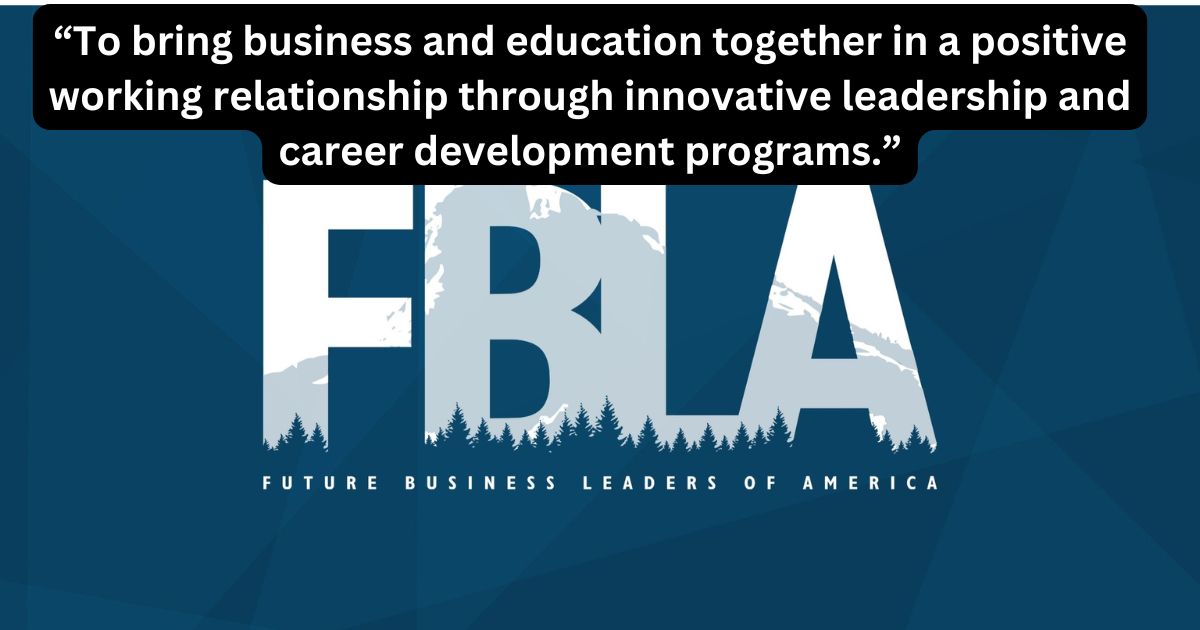The Future Business Leaders of America (FBLA) has played a crucial role in shaping the skills and leadership abilities of students aspiring to enter the business world. Since its establishment, the history of FBLA mission has evolved to adapt to changing economic conditions, technological advancements, and the growing need for 21st-century business skills.
This article explores the history of FBLA mission, its impact on students and business education, and the future direction of this influential organization.
What is FBLA?
The Future Business Leaders of America (FBLA) is the largest career and technical student organization (CTSO) in the United States. Founded in 1940 by Dr. Hamden L. Forkner, its mission has been to prepare students for careers in business and leadership.
Key Objectives of FBLA:
- Equip students with business and leadership skills
- Provide opportunities for academic and career development
- Foster networking and professional relationships
- Encourage innovation and entrepreneurship
Since its inception, FBLA has grown into a national and international organization with thousands of members, impacting millions of students.
The Original Mission of FBLA
When FBLA was first established, its primary mission was:

Early Focus of FBLA:
- Providing basic business education
- Encouraging professionalism and ethics in business
- Preparing students for entry-level jobs in business fields
This initial mission focused on business education fundamentals rather than modern entrepreneurship and technology-driven careers.
Major Changes in the History of FBLA Mission
FBLA’s mission has evolved significantly over the decades to keep up with changing business landscapes and technological advancements.
Timeline of Key Mission Changes:
| Year | Key Change | Reason for Change |
| 1940s | FBLA Founded | Address the need for structured business education in high schools |
| 1960s | Expanded to Colleges | Recognized need for business training beyond high school |
| 1980s | Focus on Leadership & Professionalism | Businesses sought soft skills like teamwork & communication |
| 2000s | Technology & Innovation Emphasis | The rise of digital skills and e-commerce required a new curriculum |
| 2020s | Entrepreneurship & Future Careers | The gig economy and remote work trends influenced mission updates |
Each decade has introduced new elements to FBLA’s mission to stay relevant in modern business education.
Impact of FBLA’s Mission on Students
FBLA’s evolving mission has profoundly impacted student development and career readiness.
How FBLA Prepares Students for Success:
- Enhances leadership skills through competitive events
- Provides hands-on business experience
- Improves networking opportunities with business leaders
- Encourages entrepreneurial thinking
- Develops critical thinking and problem-solving skills
FBLA bridges the gap between academic education and real-world business needs, ensuring students are job-ready.
FBLA’s Role in Business Education
FBLA works alongside educational institutions to create a business-oriented learning experience.
How FBLA Integrates with Education:
Curriculum Alignment – Many schools incorporate FBLA concepts into business classes
Career Exploration – Provides exposure to different business industries and careers
Internship Opportunities – Connects students with internship and mentorship programs
Certification Programs – Offers business-related certifications that add value to student résumés
FBLA’s dynamic learning model gives students a competitive edge in the modern job market.
How FBLA Adapts to Economic & Technological Changes
FBLA has continuously evolved to match technological trends and economic shifts.
Recent FBLA Adaptations:
- Incorporation of Digital Marketing & E-commerce
- Financial Literacy & Investment Training
- Artificial Intelligence (AI) & Business Analytics
- Remote Collaboration & Online Learning Initiatives
As new technologies emerge, FBLA ensures that its mission and programs evolve accordingly.
FBLA’s Influence on Entrepreneurship & Leadership
FBLA fosters an entrepreneurial mindset, helping students develop business acumen and leadership skills.
Key Entrepreneurial Lessons from FBLA:
- Business Planning & Strategy
- Risk Management & Decision Making
- Marketing & Branding Skills
- Innovation & Problem-Solving
Many successful entrepreneurs and business leaders have credited FBLA for shaping their early career paths.
FBLA in the 21st Century
FBLA has adapted to meet the needs of today’s students and the globalized economy.
Modern FBLA Initiatives:
- Diversity & Inclusion Programs
- Partnerships with Tech Giants (Google, Microsoft, etc.)
- Environmental & Social Responsibility Campaigns
- Advanced Business Simulations & Case Studies
The FBLA of today is more inclusive, innovative, and focused on the future of business.
Future of FBLA’s Mission
Looking ahead, FBLA’s mission will continue to evolve to keep pace with:
- AI & Automation in Business
- The Expansion of Remote Work
- Digital Currency & Blockchain Integration
- Entrepreneurial Ecosystem Growth
FBLA will remain a guiding force in preparing future business leaders.
Common Misconceptions About FBLA’s Mission
Myth: FBLA is only for students interested in business.
Truth: FBLA benefits students from all career fields, enhancing leadership and professional skills.
Myth: FBLA focuses only on competitions.
Truth: FBLA also offers internships, scholarships, and mentorship programs.
FAQs About FBLA’s Mission
- What is FBLA’s main goal?
FBLA aims to prepare students for successful careers in business through leadership training, competitions, and networking opportunities.
- Has FBLA’s mission changed significantly?
Yes! FBLA has expanded its focus from traditional business education to include technology, entrepreneurship, and global business trends.
- How does FBLA help students succeed?
FBLA provides real-world business experiences, leadership training, and career development programs.
- Is FBLA only for high school students?
No! FBLA has divisions for middle school, high school, and college students.
- How can I join FBLA?
Visit FBLA’s official website or ask your school’s business education department about membership opportunities.
- What career paths does FBLA support?
FBLA supports careers in business, marketing, finance, IT, healthcare management, and more.
Conclusion
FBLA’s mission has evolved dramatically to align with modern business trends and student needs. As it continues to adapt, FBLA remains a vital force in preparing students for success in leadership, entrepreneurship, and beyond.
Are you ready to unlock your potential with FBLA? Join today and start your journey to success!



